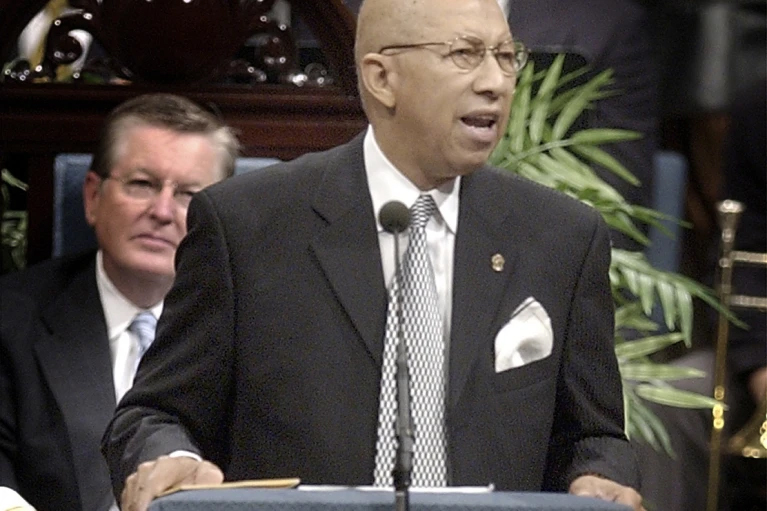By Jeffrey Collins
(Source: AP)
COLUMBIA, S.C. (AP) — Former South Carolina Sen. Kay Patterson, who rose from cleaning offices at the segregated Statehouse to serving as a state legislator for over 30 years died Friday. He was 93.
The South Carolina Democratic Party announced Patterson’s death saying he “left an indelible mark on our state. Senator Patterson commanded everyone’s attention with his wit and wisdom.”
The statement did not list a cause of death.
Patterson was born in 1931 in Darlington County and raised by his grandmothers. They recalled his hardheaded spirit early, recommending he not take jobs as a golf caddy or shoe shiner because he was likely to mouth off to white people in segregated 1940s South Carolina and get in trouble.
Instead, Patterson served in the military and then got his teaching degree through the GI Bill at Allen University. While in college, he cleaned offices at the segregated capitol where he and other Black people couldn’t be unless they were working.
“When I was a janitor, Black people couldn’t go in the Statehouse,” Patterson said in a 2004 interview with the University of South Carolina. “And then one day I came back down here as a member of the House and then in ’84, I came back sitting in the Senate as a senator. Now that’s a hell of a long way to come.”
Patterson spent 30 years in education and was elected to the South Carolina House in 1974 and the Senate 10 years later after U.S. Rep. Jim Clyburn urged him to run for the upper chamber seat.
In a statement, Clyburn called Patterson “a trusted leader, a tireless champion for civil rights, and a treasured friend. He was a person of strength, determination, wis-dom, and a long proponent of removing the Confederate flag from the South Carolina Statehouse dome.”
Patterson was also the first Black person to serve on the University of South Carolina Board of Trustees since Reconstruction.
Patterson was a key member of both the House and Senate, He served on the budget committees in both chambers and was a major voice in support of civil rights, public education and helping poor people. He adamantly demanded the Confederate flag be removed from atop the Statehouse dome and inside the House and Senate chambers long before they were taken down in 2000.
The lifelong Democrat said the final years of his political career were the toughest after Republicans took over state government. His seniority no longer mattered and he felt many newer Republicans were religious hypocrites who claimed to help others but only cared for people just like themselves.
A few years before he retired from the Statehouse, Patterson said it was important to respect elders and supervisors, but not be afraid to speak up if bothered or something was on one’s mind.
“That’s just my hallmark ever since I was a little child. It will get you in trouble now, but you can sleep well at night. And learn to treat everybody as human beings with respect,” Patterson said in the interview with the university’s Champions of Civil and Human Rights in South Carolina program.
“You can sleep real good at night. Right now, I’m 73 years old and sleep like a log when I go to bed because I know I’ve done no wrong to my fellow man,” Patterson said.

